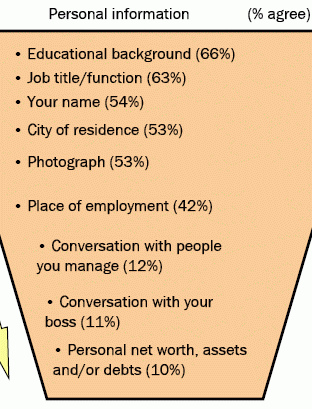Smart mobs: online community research
Brief research results are published in a 16-page presentation titled “Out There” ( PDF ). Obviously, the presentation is designed primarily for people from the offline world, who have recently wondered: what is happening? What kind of oddities around?
Researchers have noted a clear change in the role of the Internet in recent years. People became more active, began to generate more content, publish private information about themselves and other people, communicate on social networks. A whole category of people has appeared who spend a lot of time on the Internet. They live “somewhere out there,” which is why the work of the researchers is called: “Out There” (“Somewhere Out There”).
So, what is the difference between such "distant" people of the Internet generation? A brief survey showed that they have three distinct features. The vast majority of participants in virtual communities have at least one common feature among the three listed:
they consider “popularity” to be some value;
they want to publish some types of private information online;
they consider it normal to criticize their company on the Web.
Approximately 69% of all respondents agreed with at least one of these points .
 A detailed survey showed that members of virtual communities are still somewhat secretive about the details of their offline lives. Only 54% of respondents are ready to give their online name and place of residence to the online community, and only 42% are ready to give their place of work.
A detailed survey showed that members of virtual communities are still somewhat secretive about the details of their offline lives. Only 54% of respondents are ready to give their online name and place of residence to the online community, and only 42% are ready to give their place of work.
Researchers have found that approximately half of all managers and business people are members of a particular online community, showing at least an average degree of involvement.
In general, participants in virtual communities can be characterized as follows: they
are ready to quickly recognize the current trend and to follow it (fast followers); open communicators tend to
adapt to a high position in society
looking for new, innovative ideas in
short: these are future leaders
Researchers have noted a clear change in the role of the Internet in recent years. People became more active, began to generate more content, publish private information about themselves and other people, communicate on social networks. A whole category of people has appeared who spend a lot of time on the Internet. They live “somewhere out there,” which is why the work of the researchers is called: “Out There” (“Somewhere Out There”).
So, what is the difference between such "distant" people of the Internet generation? A brief survey showed that they have three distinct features. The vast majority of participants in virtual communities have at least one common feature among the three listed:
they consider “popularity” to be some value;
they want to publish some types of private information online;
they consider it normal to criticize their company on the Web.
Approximately 69% of all respondents agreed with at least one of these points .
 A detailed survey showed that members of virtual communities are still somewhat secretive about the details of their offline lives. Only 54% of respondents are ready to give their online name and place of residence to the online community, and only 42% are ready to give their place of work.
A detailed survey showed that members of virtual communities are still somewhat secretive about the details of their offline lives. Only 54% of respondents are ready to give their online name and place of residence to the online community, and only 42% are ready to give their place of work. Researchers have found that approximately half of all managers and business people are members of a particular online community, showing at least an average degree of involvement.
In general, participants in virtual communities can be characterized as follows: they
are ready to quickly recognize the current trend and to follow it (fast followers); open communicators tend to
adapt to a high position in society
looking for new, innovative ideas in
short: these are future leaders
